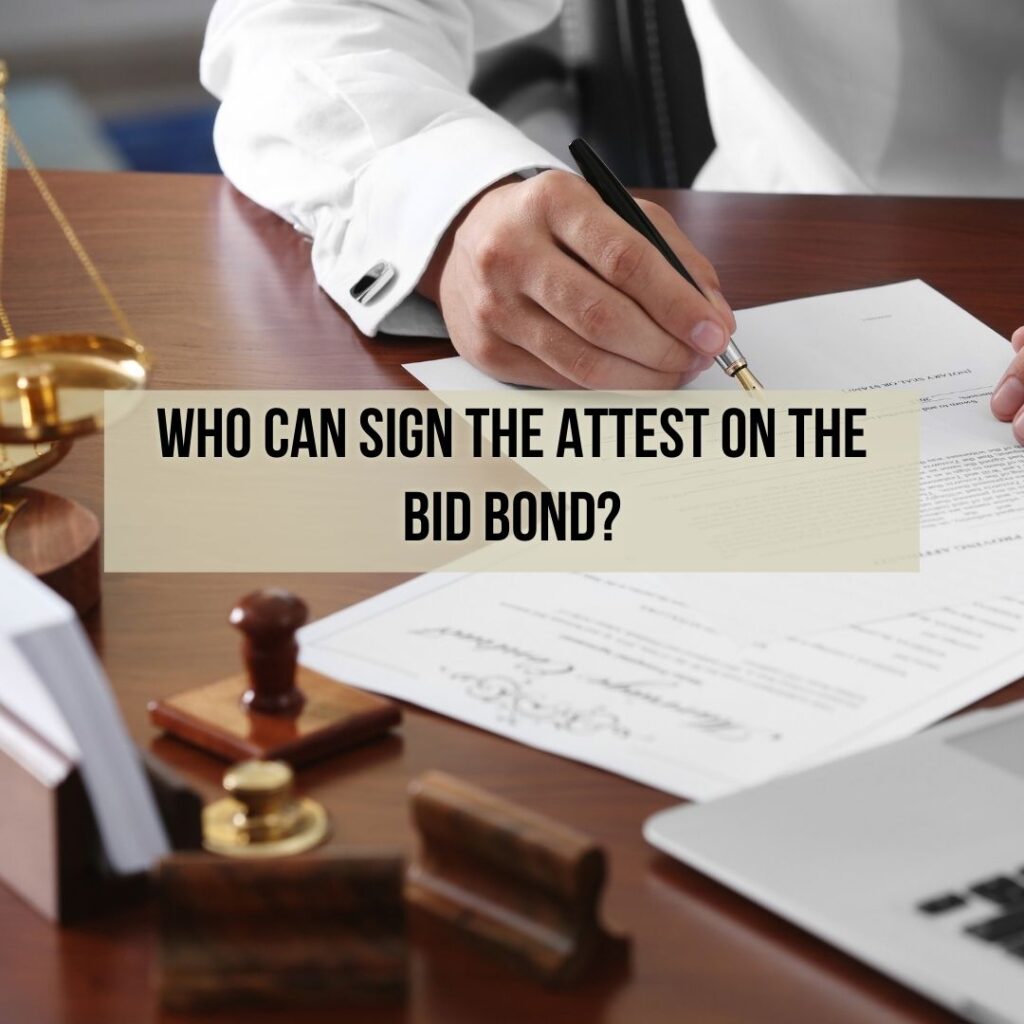Who can Sign the Attest on the Bid Bond?
When you are bidding on a government contract, you will be required to submit a bid bond. This document is used to ensure that the winning bidder intends to complete the contract if they are selected. The bid bond must be signed by someone with authority to bind the company, and this person is known as the attest. In this blog post, we will discuss who can sign the attest on a bid bond.

What is a seal on a bid bond?
A seal on a bid bond is an official stamp that indicates that the document has been certified and approved by a company or local government. It is usually placed at the end of the contract, and it serves as proof that all parties involved have agreed to the terms of the agreement. The seal on a bid bond also ensures that any work performed by the agreement will be completed promptly and up to the specified standards.
Witnessing bonds and bond applications
Witnessing Bonds and Bond Applications are two important components of the bond process. The witness is a third-party individual who must provide their signature on the bond application to certify that all parties involved are in agreement and understand what they are signing up for. They also confirm that financial compensation has been provided as part of the agreement. Bond applications are legal documents outlining the terms, conditions, and responsibilities of all parties involved in the bond. They often include an indemnity agreement where a surety company agrees to guarantee payment if one of the parties fails to meet their obligations.
How do you secure a bid bond?
The process of securing a bid bond can vary, depending on the size of the project and the type of bond in question. Generally speaking, it is important to review all documents carefully before submitting a bid as failure to do so may result in having your bid disqualified. In addition, you must understand the process for obtaining and filing a bid bond.
Who is the principal in a bid bond agreement?
The principal is the person or entity that signs the bond and promises to be liable for the payment of money if there is a breach of contract. The surety then guarantees, on behalf of the principal, that any obligations specified in the bid bond will be fulfilled.
Who can sign the attest on the bid bond?
The attest must be signed by a licensed attorney, or in some cases, an authorized representative of the surety company that issued the bid bond. Depending on state law and the language in the bid documents, other types of authorized representatives may also be allowed to sign. It is important to note that notary requirements vary from state to state and should be verified in the bid documents. It is also important that the person signing is authorized to sign for the surety company or business.
Who holds the signed surety bond documents?
Once the surety bond documents have been signed, they are typically sent directly to the party for whom the bond was written. This can be either the obligee or a third-party bonded agent. The obligee is usually a government entity that requires the surety bond and sets specific conditions regarding its completion. A third-party bonded agent is an outside company that is in charge of making sure the bond conditions are met. The agent holds the signed documents until all parties involved have verified that the terms and conditions of the bond have been satisfied.
How do I validate a bid bond?
To validate a bid bond, several steps must be taken. First, you should request a copy of the bond from the contractor. This should include all relevant information regarding its conditions and terms, such as the amount and date of issue. Additionally, you should also request a copy of the contractor’s financial statements to ensure that they have sufficient resources to complete the work.
